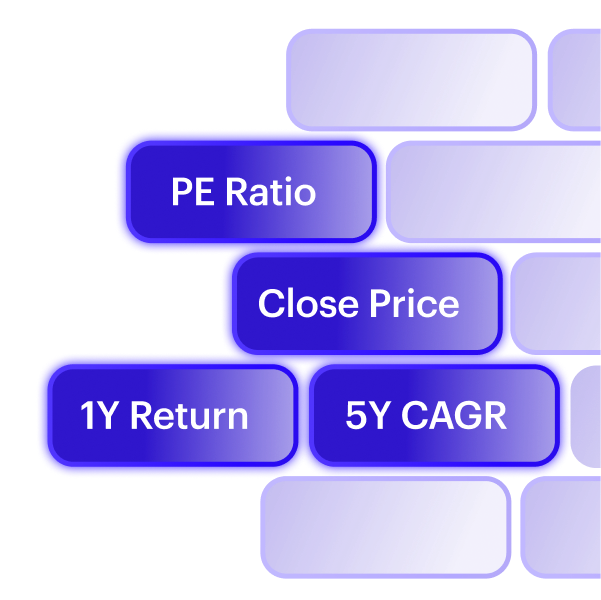Last Updated on Sep 1, 2021 by Manonmayi
Tax planning is an important component of financial planning. When you invest in mutual funds, you should be aware of the tax implications of your investments as well as redemptions.
When it comes to saving tax on mutual fund investments, only Equity Linked Saving Schemes (ELSS) offer a tax advantage under Section 80C of the Income Tax Act, 1961. The maximum limit of this deduction is Rs 1.5 lakh including other eligible investments. Investment into any other mutual fund scheme or direct equity investment does not give you any tax advantage.
At the time of redemption, however, the returns that you earn from the mutual fund investment, including ELSS schemes, are subject to capital gains tax. Let’s understand how this tax works.
This article covers:
- Capital gains on mutual funds
- Calculation of capital gains on mutual funds
- Examples for calculating capital gains on equity and debt funds
- A look into indexation benefit
Table of Contents
Capital gains on mutual funds
When you redeem or switch your mutual fund investment, the returns earned are called capital gains. Taxation of such gains depends on two things:
- The type of mutual fund scheme that you had invested in
- The tenure after which you are redeeming or switching the units
Here’s a look at how these individual factors affect capital gains tax on mutual funds:
1. Type of mutual fund scheme
Equity mutual funds are taxed differently than debt mutual funds. That is why it is imperative to understand the type of scheme that you are redeeming.
A mutual fund scheme is said to be an equity-oriented scheme if the portfolio has at least 65% exposure to equity, i.e. at least 65% of the portfolio’s assets are invested in equity stocks and securities.
A debt fund, on the other hand, has a low or nil equity exposure and invests in fixed-income debt instruments. Moreover, funds whose portfolio does not have a minimum of 65% equity exposure also attract debt taxation.
2. Redemption tenure
In the case of equity mutual funds, if you redeem your investments after 12 mth, the returns earned are called long term capital gains (LTCG). They are, thus, subject to long term capital gains tax. On the contrary, redemption within 12 mth results in short term capital gains (STCG) and such returns attract short term capital gains tax.
In the case of debt, however, the redemption tenure is 36 mth. Redemption within 36 mth of investment yields short term capital gains and those after 36 mth generate long term capital gains.
Calculation of capital gains on mutual funds
Both long term and short term capital gains on equity and debt funds are taxed differently. So, let’s understand each one in detail:
Short term capital gain (STCG) on mutual fund
- In the case of equity mutual funds, short term capital gains are taxed at 15% if you earn a return on redemption within 12 mth
- In the case of debt mutual funds, short term capital gains are taxed at your income tax slab rate. So, if you are in the 5% tax bracket, the returns earned within 36 mth would be taxed at 5%. Similarly, if you are in the highest tax bracket of 30%, the returns would also be taxed at 30%
Long term capital gains (LTCG) on mutual fund
- LTCG on mutual funds, which have at least 65% equity exposure, i.e. equity mutual funds, is nil if the returns are up to Rs 1 lakh. This means, on redemption after 12 mth, if you earn returns up to Rs 1 lakh, no tax would be payable on such returns. However, if the returns exceed Rs 1 lakh, the excess returns are taxed at 10%
- In the case of debt mutual funds, the returns earned after 36 mth are fully taxable. LTCG on mutual funds in such cases is 20%. However, you get the benefit of indexation, i.e., the investment amount would be inflation-adjusted so that the returns, after inflation, are charged to tax. This reduces the tax liability on returns
Let’s understand how the capital gains are calculated on equity and debt mutual funds.
Examples for calculating capital gains on equity and debt funds
Short term capital gains on equity mutual funds
| Investment into an equity fund on 1st Jan 2020 | Rs 1 lakh |
| Redemption on 1st Jun 2020 | Rs 1.25 lakh |
| Capital gains earned | Rs 25,000 |
| Type of capital gain | Short term capital gain |
| Tax on capital gain | 15% of Rs 25,000 = Rs 3,750 |
Long term capital gains on equity mutual funds
| Investment into an equity fund on 1st Jan 2020 | Rs 2 lakh |
| Redemption on 1st Jun 2021 | Rs 3.5 lakh |
| Capital gains earned | Rs 1.5 lakh |
| Type of capital gain | Long term capital gain |
| Tax on capital gain | Gain up to Rs 1 lakh – no taxGain exceeding Rs 1 lakh are taxed at 10%So, tax payable = 10% of 50,000= Rs 5,000 |
Short term capital gain on debt mutual funds
| Investment into a debt fund on 1st Jan 2020 | Rs 1 lakh |
| Redemption on 1st Jun 2020 | Rs 1.25 lakh |
| Capital gains earned | Rs 25,000 |
| Type of capital gain | Short term capital gain |
| Tax on capital gain | As per your tax slabSo, if you are in the 20% tax slab, the tax payable would be 20% of Rs 25,000= Rs 5,000 |
Long term capital gain on debt mutual funds
| Investment into an equity fund on 1st Jan 2018 | Rs 2 lakh |
| Redemption on 1st Feb 2021 | Rs 3 lakh |
| Capital gains earned | Rs 1 lakh |
| Type of capital gain | Long term capital gain |
| Tax on capital gain | 20% with the benefit of indexation |
A look into indexation benefit
In the case of long term capital gains from debt mutual funds, you get the benefit of indexation wherein the investment amount is adjusted as per inflation when calculating the returns earned. So, in the last example, the investment of Rs 2 lakh, done on 1st Jan 2018, would be indexed to calculate the indexed cost of acquisition. This calculation is done as follows:
Indexed cost of acquisition = (CII in the year of redemption / CII in the year of investment) * investment amount
CII is the Cost Inflation Index whose value is published by the income tax department every year. The indexed cost, in the above example, would be calculated as follows:
Indexed cost of acquisition = (CII of 2020-21 / CII of 2017-18) x Rs 2 lakh
= (301/272) x Rs 2 lakh
= Rs 2,21,324 (rounded off to the nearest rupee)
Source: https://economictimes.indiatimes.com/wealth/tax/cost-inflation-index-for-fy-2020-21-used-for-ltcg-calculation-notified-by-finance-ministry/articleshow/76355897.cms
Returns that would be taxed = Rs 3 lakh – Rs 2,21,324 = Rs 78,676
Tax payable = 20% of Rs 78,676 = Rs 15,735.2
The gains earned from your mutual fund investments are subject to tax. Understand what type of gains you have earned (short term or long term) and the tax payable when redeeming your mutual fund investments. This knowledge of STCG and LTCG on mutual funds would help you plan your taxes better so that you can reduce your tax liability as much as possible.
Disclaimer: Kindly consult your tax advisor before making any before engaging in any transaction.
- Top Fund of Funds (FOF) in India – Full Form, Types & More - Mar 28, 2025
- Bond Funds – Meaning, Types, Risks, and Benefits - Mar 27, 2025
- Money Market Mutual Funds: Meaning, Benefits, Liquidity and Taxation - Mar 13, 2025




